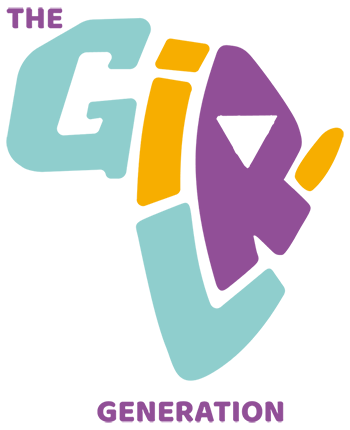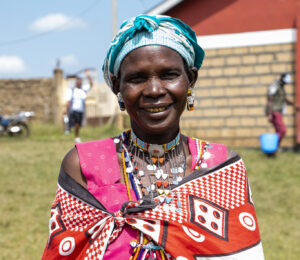Mumina – The women’s rights and mental health advocate
Mumina is angered every time she thinks about the effects of Female Genital Mutilation/Cut (FGM/C). Her activism is inspired by personal experiences.
“My younger sister and I went through the FGM process together. My sister was living her best life before going through the violation. We didn’t have a choice as it was accepted as a cultural rite of passage for women.” Says Mumina. “My sister’s journey has been more difficult ever since. She developed a physical disability after the cut and now limps. Shortly after, she developed a keloid.”
“When my sister got married, she could not bear children, and this led to her experiencing neglect and eventually divorced. My sister has suffered a stroke too. When I look at her life experiences, my heart breaks; all this began as soon as she went through the cut.” Mumina added.
According to UNICEF, at least 200 million girls and women alive today living in 31 countries have undergone FGM/C. The practice varies from community to community, and it is considered worldwide as a violation of girls and women’s rights.
“In my community, when girls are cut, a mixture of traditional herbs are inserted in the wound before the cut is stitched. This may result in lifetime infections. Additionally, majority of women who have been cut do not enjoy sex because of pain during penetration. This has led to many women developing a disinterest in sex due to the pain they experience, yet men do not seem to understand this. I too did not understand the negative implications of going through the cut.”
The journey to personal healing
The Girl Generation (TGG): Support to the Africa Led Movement to End FGM/C Programme, engages community-based activists who are best placed to understand their communities and perceptions surrounding FGM/C. Local based activists and influencers especially survivors of FGM/C play a key role in advocating for an end to the practice through survivor-based testimonies. This has gone a long way in supporting and stopping girls and young women from undergoing the cut and gaining an education through social diffusion. However, many survivors are forced to recount their traumas without receiving adequate support to heal.
In March 2022, Mumina was among 20 survivors of FGM/C who attended the Survivor Leadership Training (SLT). The goal of the SLT is to: (i) provide sustainable emotional support and funding for women and girls affected by FGM/C in order to enhance prevention efforts and support survivors; (ii) fill the gap for survivor’s leadership in the end FGM/C movement by equipping and empowering survivors to become leaders; (iii) ensure self-care for survivors working to end FGM/C and breakdown the stigma associated with FGM/C and associated emotional/mental health issues.
“SLT opened my eyes. The sessions held allowed me to know the type of FGM/C that I and my sister underwent. I also gained self-confidence and began to appreciate myself. I received a great healing opportunity and I no longer take my well-being for-granted.” Says Mumina. “I now champion the end of FGM/C from a more informed position. It is not just a cultural practice but a violation of our rights as girls and women.”
Moving the needle
Maimuna now leads conversations with girls, boys, parents and guardians in her home area of Isiolo County. Having gained self-confidence, she is more vocal about ending FGM/C in her community.
“I am now a coordinator for Girls Rising, an organization based in Isiolo County. With the support from The Girl Generation (TGG): Support to the Africa Led Movement to End FGM/C Programme, I use the girls’ facilitation manual to run conversations with girls and boys in schools. The manuals help to build the confidence of girls to reject FGM/C, gain life skills and report Gender Based Violence (GBV) cases.
One of the positive aspects of the sessions so far is seeing girls saying no to FGM/C and demanding an education. Many girls now view FGM/C as a pathway into child marriages which curtails their dreams.”
“I also target men and women, particularly guardians and parents to help them understand the negative effects of FGM/C and why they should protect their girls. Additionally, I now champion for the mental well-being of survivors and now understand why it is important for us to take care of ourselves even as we advocate for an end to FGM/C.”
Some of the modules covered under the SLT include understanding FGM/C as child abuse and childhood trauma; safeguarding and protecting others and self; a heart-to-heart session to share stories and journeys of healing and well-being; psychosexual health and sexuality and the power to lead.
The Girl Generation (TGG): Support to the Africa Led Movement to End FGM/C Programme, supports community-level interventions to end FGM/C, which are led by grassroots organizations. Strengthening mental and psychosocial support for survivors of FGM/C helps them to reclaim their power, dignity and wellbeing.
FGM/C is a violation of girls’ rights and a form of child abuse. Yet the practice is far from over. Much more needs to be done, to anchor policy into practice. TGG will continue to fight for change to ensure women and girls can live free from FGM/C and all forms of gender-based violence.



